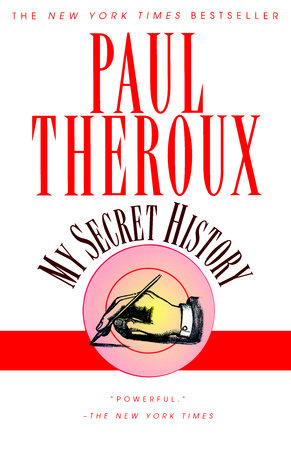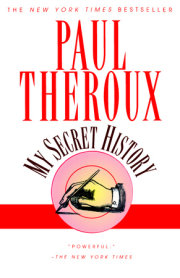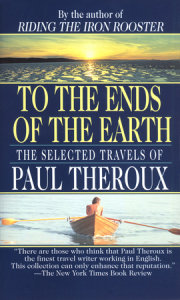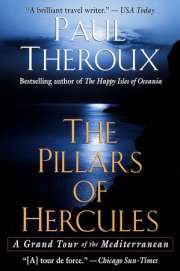1.
I was born poor in rich America, yet my secret instincts were better than money and were for me a source of power. I had advantages that no one could take away from me—a clear memory and brilliant dreams and a knack for knowing when I was happy.
I was at my happiest leading two lives, and it was a satisfaction to me that the second one—of the dreamer or the sneak—I kept hidden. That was how I spent my first fifteen years. Fifteen was young then and I knew this: The poor don’t belong. But one summer out of loneliness or impatience my second self did more than wake and watch, and more than remember. He began to see like a historian, and he acted. I have to save my life, I used to think.
Early that summer I was walking down a lovely crumbling little street lined with elms, called Brookview Road. The city of Boston, with its two tall buildings, was visible from one end of the road looking east along the Fellsway. The brook was a shallow ditch at the other end of the road, where the Italian families had tomato gardens. There were rats in the ditch, but it was a pretty part of town when the wineglass elms were heavy with leaves.
It was a perfect day of blue sky and the hot summer hum of insects, which made a sound like the temperature rising. I had my rifle over my shoulder—a Mossberg twenty-two—as I passed Tina Spector’s house. She was sitting on her piazza, which was our word for porch. I had planned it this way.
She said, “Hey, Andy, where are you going with that gun?”
“Church,” I said.
“It’s Tuesday!”
“But I’ve got a funeral.”
I was still walking, and now Tina started off the piazza towards me. I knew she would: it was part of my plan.
“How come you’re bringing your gun to church?”
“Target practice, up the Sandpits,” I said. “After.”
She said, “My mother can’t stand guns.”
Everybody said that. I kept walking.
“And you’re not even sixteen,” she said.
I could feel the warm pressure of her eyes on the back of my neck.
She said, “Can I come with you?”
“Okay,” I said, probably too eagerly—but I didn’t want her to change her mind. I had planned to agree very slowly and reluctantly. I had blurted it out, because I was so glad she had asked. The thought of being alone with Tina in the Sandpits on a hot summer afternoon was very erotic, and having my rifle with me made it still more erotic, for a reason I could not explain. I did not know what erotic meant; wicked was the word that went through my head.
“Meet me outside Saint Ray’s.”
“My mother doesn’t want me near that church.”
Her mother was a non-Catholic.
“What’s in that bag?” she asked—she was still following me, three steps behind.
“Ammo,” I said. “Bullets.”
That was a lie. My cartridges were in my pocket. In my bag I had a starched surplice—a white smock with starched sleeves and a stiff plastic collar. I was an altar boy, on my way to serve at a funeral.
I heard her sneakers crunch behind me. I knew she had stopped but I didn’t look around.
“See you later,” she said.
“Okay,” I said.
We were both fifteen years old. I did not know whether she would be waiting for me. Things always happened suddenly, without much warning. Some days nothing happened and other days everything.
* * *
The rule at St. Raphael’s—St. Ray’s—was that if you served at three funerals you got a wedding as a reward. Funerals were gloomy, and it was an elderly parish, so there were plenty of them. But there was money in a wedding. The altar boys usually got two dollars, and the priest got ten. The money was handed over by the best man or the bride’s father. It was always in a white envelope, always in the sacristy. “Here you are,” they’d say to us, and then turning to the priest, “This is for you, Father.”
“God bless you,” the priest would say, as he folded the envelope into his vestments. Meanwhile we were tearing ours open.
There was no money in funerals, and it could be terrible, especially if it was Italians—the shouts and nose-blowings of big competitive families, and the loud abrupt sobbing, or “No!” or the screaming of the dead person’s name. “Salveeeeee!”
I unslung my Mossberg and held it muzzle down, walking stiff-legged to conceal it. I sneaked into the sacristy and saw Chicky DePalma pulling on his cassock.
“I hosey the bells,” he said, before I could speak. Ringing the bells at the consecration was considered one of the enjoyable duties of an altar boy, and the boy who rang the bells also got to hold the plate at the communion. That was a flat gold pan that was placed under a person’s chin to catch any falling flecks of the consecrated host.
Chicky had started buttoning his cassock—a finicky job, thirty buttons or more.
“Hey, shitface, you’re not supposed to bring guns into a church!”
He fought the buttons with his big fingers.
“It’s not loaded. And I took the bolt out.”
“It’s still a gun! It could go off, asshole!”
“You don’t know shit about guns,” I said. “Anyway, this is the sacristy.”
The sacristy was a safe place—not sacred, but a sort of neutral area, like a lobby where we altar boys met and waited until it was time for mass. In the meantime we were growing up. Whenever a priest tried to explain what limbo or purgatory was I thought of the sacristy. Who would know if there was a gun here?
I slipped the Mossberg into the closet behind the hanging cassocks, and then looked for a cassock my size.
Chicky said, “I saw you with Specks.”
“She was following me.” I decided not to tell him I was taking her to the Sandpits—he would laugh or else mock me.
“Her sister got knocked up—she had to get married.” Chicky was now working his arms into his surplice—it was pure white and pleated and fringed with lace. Italians always had the best surplices, because of their mothers; and they even brought them on hangers. “She was a real tramp. She once took on six guys. She used to give hand-jobs. She let Moochie eat her out.”
“Quit it,” I said.
“You fairy,” Chicky said, and smoothed his surplice in the mirror. “I was making out last night. I’m not going to say with who. After about two seconds she was letting me have bare tit. I was really getting her hot.”
“I’ll bet you weren’t,” I said, to encourage him. I was eager for more. I buttoned my cassock and pretended I wasn’t listening.
“He doesn’t believe me,” he said, in a confident way, and then teased me with silence.
“How did you know?” I whispered, looking around. The priest had still not arrived, although the vestments were out, folded neatly on top of the altarlike cabinet, the stacks of linens and the bright chasuble; and his cope, his cincture and stole.
He said, “I could feel it.”
I was staring at him, holding the skirt of my cassock.
He said, “When a girl gets hot her hole gets bigger.”
I could picture this very distinctly, the dark opening and the way it widened in a round welcoming way. My mouth was very dry. No one had ever said those words to me before, but it made perfect sense.
Chicky was fixing his plastic collar—twisting it to fasten the collar button into it.
“She was really hot,” he said. “I got three fingers into her.”
The sun was streaming through the stained-glass window over the vestments, and the alb and the white linens blazed. The sacristy was warm and smelled of floor polish and soft candlewax.
“Who was it?”
Now I had my cassock and surplice on, and I was tying the black bow in front of my collar. It was impossible for me to hide my fascination with what he had told me.
He grinned to tease me with another delay, and then he said, “Magoo.”
It was a girl named Eloise McGonagle, but no one called her anything but Magoo.
Chicky was still grinning, but now his lips were purple. He held out a bottle of mass wine and said in a man-of-the-world way, “Want a swig?”
I tried not to look shocked. It was not that he was drinking mass wine—I had seen him do that before, and had even had some myself—but rather that he was doing it so near to the time the priest was to arrive. His tongue was purple, he had a purple mustache. He sloshed the wine in the bottle and said, “Go ahead.” His face was Italian yellow, he had long eyelashes and a birthmark like a bruise on his cheek. When he smiled he looked like a monkey.
I took a swig. It tasted harsh and bitter—it tasted dreadful. I had another. It tasted even worse.
“Have one of these,” Chicky said.
He was holding out a handful of communion wafers, small papery disks, and some spilled to the floor as he offered them.
“They’re not consecrated, so what the fuck,” he said recklessly and stuffed the hosts into his mouth.
Just then the priest came in, walking fast.
Copyright © 2011 by Paul Theroux. All rights reserved. No part of this excerpt may be reproduced or reprinted without permission in writing from the publisher.








